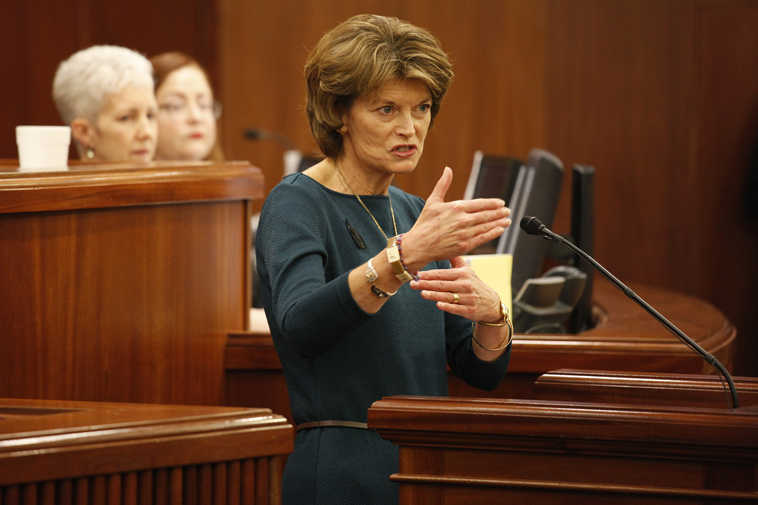JUNEAU — U.S. Sen. Lisa Murkowski began her annual address to Alaska lawmakers with accolades about federal progress on issues that could bring economic growth and stability to the state. She ended it warning of increasing federal encroachment into state government.
During her speech Wednesday, Murkowski highlighted positive changes in transportation policy and military infrastructure improvements. She said those benefits include about $561 million in military spending that could be poured into Alaska’s construction economy.
While Alaskans focus on dealing with economic uncertainty, Murkowski said she is doing what she can to bring stability at the federal level.
“Our resource producers need the certainty that our federal areas will be accessible and that their permit applications will be considered promptly and fairly,” she said. “Our small businesses need the certainty that their investments are not going to be subject to an ever-increasing tax burden.”
To that end, Murkowski highlighted a bipartisan, $305 billion, five-year infrastructure bill that she said will bring more than $507 million to the state in the coming year and increase through 2021.
“When you’re talking about certainty and the need for stability, how helpful is it that for the first time in years, we have a multiple-year transportation bill,” Murkowski said. “What this means is certainty for funding for our ferries, our tribal transportation program. We’ve got streamlined permitting; we’ve got land exchanges for southeast contained in that.”
But, she said President Barack Obama’s focus on executive action in the last 10 months of his presidency could result in significant changes for Alaskans. She said lawmakers should be on guard against restrictive new federal policies.
Sen. Cathy Giessel, R-Anchorage, asked about an Environmental Protection Agency program allowing water bodies to be classified as outstanding natural resource waters. It would give the waters the agency’s highest water-quality protection.
Giessel said Alaska currently has no water bodies with that classification, but three have been nominated. She said the classification had the potential to shut down development in areas of the state.
“I was hoping you could help us understand. We are told that the EPA mandates that we do this? Can you help us understand — is this really required?” Giessel asked.
Murkowski said lawmakers should seek remedies to burdensome initiatives in court or by passing legislation.
“What effectively we’ve got to be doing is pushing back and challenging every step of the way,” she said.

